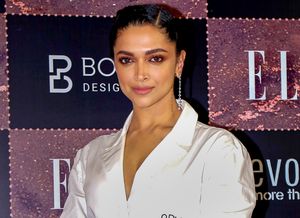I don’t envy Deepika Padukone this week. Despite being India’s biggest female celebrity at the moment, the beautiful movie star is being widely panned for her newly launched beauty line. Padukone launched 82°E, an Indian-owned and -made self-care brand, named after the longitude that runs through India “and shapes our relationship with the rest of the world”, she says.
The news of celebrity merch launches is usually met with much fanfare. Fans welcome the products almost as if stars have made them in their kitchens themselves. But Padukone’s two products were widely denounced by her followers for being too expensive and well out of reach for most Indians. It is hardly a criticism; Padukone and her partners are free to choose their price points and target markets. But perhaps fans have had enough of celebrities pushing stuff on them.
The global skincare market is estimated to be worth more than $181 billion by 2025. This has caused a mad rush in the industry to launch an assortment of products with larger-than-life celebrities. Besides, banker-turned-beauty entrepreneur Falguni Nayar’s beauty e-com aggregator and producer Nykaa had a blockbuster IPO in 2021, outwitting food, fin-tech, and edu-tech giants in the fray. “Beauty really is the most lucrative industry, so it is no surprise that everyone wants a piece of the beauty pie,” says Vasudha Rai, author and wellness influencer.
Katrina Kaif launched Kay Beauty in 2019, a wide range of lip and eye colour that is well priced and easily available in department stores across India. Priyanka Chopra’s Anomaly Haircare, launched in the US in 2021 and in India a few weeks ago, is liked, too. Designer Masaba Gupta launched Lovechild in August, embracing the term she is often called by others. “For a major part of my life, the term love child has been leading the narrative irrespective of who I was or what I had achieved. While I never understood why it was such a huge part of my introduction, I decided to own it and build a positive and wholesome feeling around the term,” she announced. Padukone’s lacklustre launch as well as high prices seem to be asking stars not to take their audience for granted.
There are so many international celebrities who have launched their own skincare lines that the market is now overcrowded and cluttered. While stars have often modelled for beauty products—most famously by brands like L’Oreal, Chanel and Dior—manufacturers now want the celebrities to be co-owners, not just the face, of the brand. Consumers want cosmetics they can trust, hence the focus on formulations, ingredients and quality, more than just the name endorsing it. With a celebrity partner, companies ensure longevity of their brand. The wide appeal of this has been seen when almost any celebrity-promoted beauty brand turns them into instant billionaires.
Some of the more famous international brands are Jessica Alba’s Honest Beauty, Gwyneth Paltrow’s Goop, Rihanna’s Fenty Beauty, Selena Gomez’s Rare Beauty, Hailey Bieber’s Rhode Skin, Harry Styles’s Pleasing, Pharrell Williams’s Humanrace, and Brad Pitt’s poorly-launched genderless Le Domaine Skincare.
Consumers are already beginning to question whether the celebrities know anything about the beauty industry before launching their own brands, as in the case of Pitt. Besides, smaller, more sincere and certainly more scientific, independent labels are being crushed by these overhyped launches. More importantly, do celebrities use their own skincare? Customers may fall for a marketing gimmick once, but they are more interested in looking for widely acclaimed magic ingredients like niacinamide, retinol and the all-important Vitamin C on the bottle. The business of celebrity beauty may just be skin-deep.
@namratazakaria


